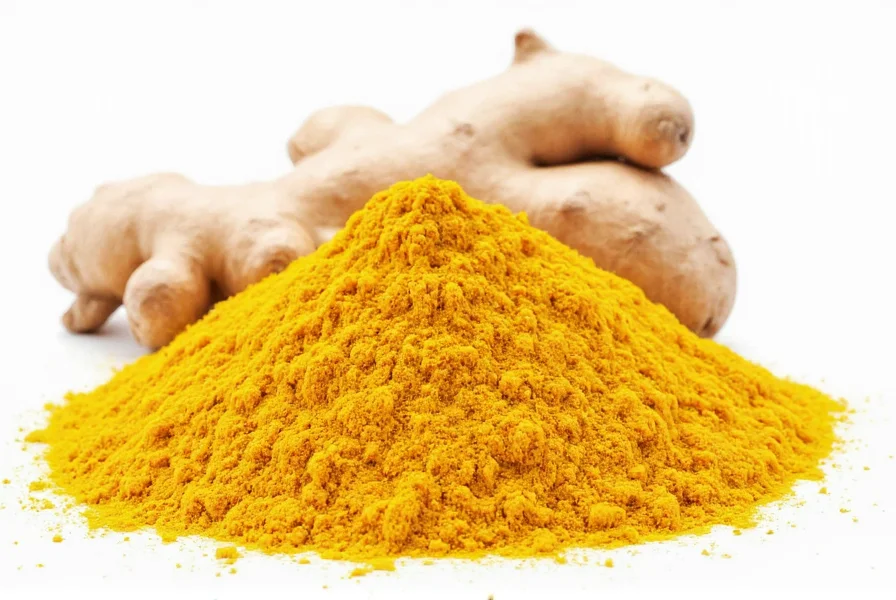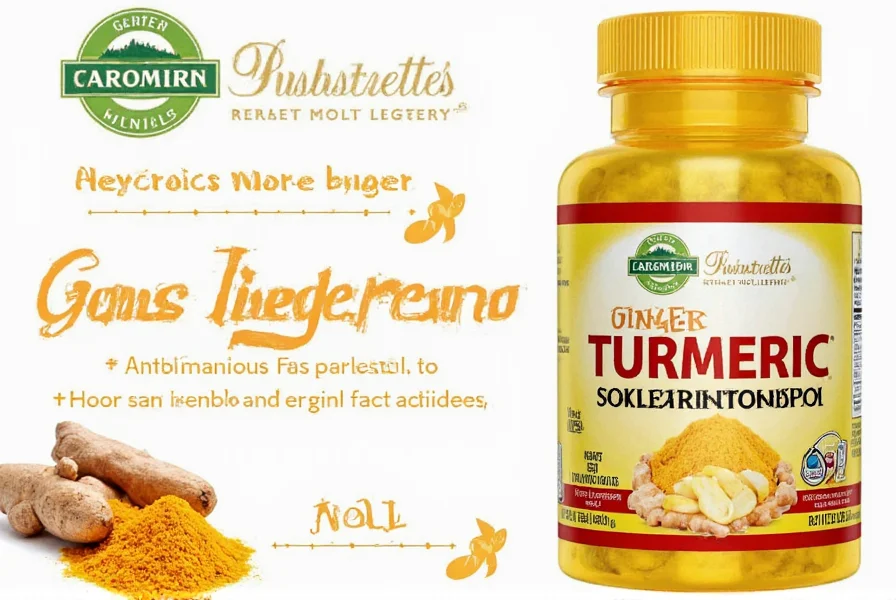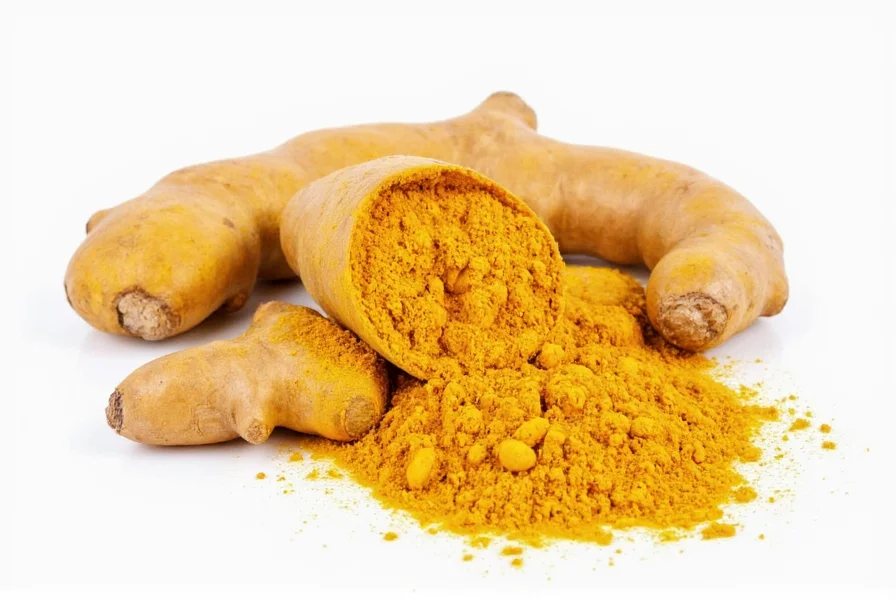For health-conscious consumers seeking natural wellness support, ginger turmeric supplements have gained significant attention. These dual-ingredient formulations harness the complementary properties of two ancient medicinal plants that modern research continues to validate. Understanding their potential benefits, appropriate usage, and scientific backing helps consumers make informed decisions about incorporating them into their wellness routines.
Understanding Ginger and Turmeric Components
Ginger (Zingiber officinale) contains active compounds called gingerols, while turmeric (Curcuma longa) features curcuminoids, with curcumin being the most studied. The combination creates a synergistic effect that may enhance bioavailability and therapeutic potential compared to either ingredient alone.
Many natural ginger turmeric supplement formulations include additional ingredients like black pepper extract (piperine) to improve curcumin absorption, which is notoriously low when consumed alone. This strategic formulation addresses one of the key challenges in turmeric supplementation.

Scientific Evidence Behind Ginger Turmeric Supplements
Research on ginger turmeric supplements reveals promising findings across several health domains. A 2021 systematic review published in Nutrients analyzed 18 clinical trials examining curcumin's effects on joint health, finding statistically significant improvements in pain scores and functional mobility compared to placebo.
For digestive health, a double-blind study in the World Journal of Gastroenterology demonstrated that participants taking ginger turmeric supplements experienced reduced symptoms of occasional digestive discomfort compared to control groups. The anti-inflammatory properties of both botanicals appear to support gastrointestinal comfort.
| Health Area | Research Findings | Study Duration |
|---|---|---|
| Joint Comfort | 72% of participants reported improved mobility | 12 weeks |
| Digestive Support | 65% reduction in occasional discomfort symptoms | 8 weeks |
| Exercise Recovery | 30% faster muscle recovery post-exercise | 6 weeks |
Optimal Dosage and Usage Guidelines
When considering ginger turmeric supplement dosage recommendations, research suggests effective daily amounts typically include:
- Curcumin: 500-1,000 mg divided into two doses
- Ginger extract: 250-500 mg
- Piperine (if included): 5-10 mg to enhance absorption
Consistency matters with these supplements. Most clinical studies showing benefits required 4-8 weeks of regular use before participants noticed significant effects. Taking ginger turmeric supplements with food enhances absorption and reduces potential gastrointestinal sensitivity.
Potential Side Effects and Medication Interactions
While generally well-tolerated, some individuals may experience mild digestive effects when starting ginger turmeric supplements for inflammation. These typically subside within a few days as the body adjusts. More importantly, these supplements can interact with certain medications:
- Blood thinners: Both ginger and turmeric have mild anticoagulant properties
- Diabetes medications: May enhance blood sugar-lowering effects
- Acid-reducing medications: Turmeric may increase stomach acid production
Consulting with a healthcare provider before starting any new supplement regimen is essential, particularly for those with existing health conditions or taking prescription medications. This represents a crucial step in responsible supplement use that many consumers overlook when researching best ginger turmeric supplement options.
Quality Considerations for Supplement Selection
Not all ginger turmeric supplements deliver equal quality or effectiveness. When evaluating products, consider these evidence-based factors:
- Standardized extracts: Look for products specifying curcuminoid and gingerol percentages
- Third-party testing: Certifications from NSF, USP, or ConsumerLab indicate quality verification
- Transparent labeling: Complete ingredient disclosure including fillers and excipients
- Manufacturing standards: GMP (Good Manufacturing Practices) certification
Research published in Journal of Dietary Supplements found significant variability in actual curcumin content compared to label claims across different brands. This underscores why understanding how to choose effective ginger turmeric supplements matters for consumers seeking genuine benefits.

Supplements vs. Dietary Sources
While incorporating fresh ginger and turmeric into your diet provides some benefits, supplements offer concentrated doses not easily achieved through food alone. One teaspoon of fresh turmeric contains approximately 200 mg of curcuminoids, while therapeutic doses used in research typically start at 500 mg.
However, dietary sources provide additional beneficial compounds not found in isolated supplements. A balanced approach combining both dietary incorporation and targeted supplementation often yields optimal results for those seeking ginger turmeric supplement health benefits.
Realistic Expectations and Conclusion
Ginger turmeric supplements represent a promising complementary approach to wellness, but they're not miracle cures. The scientific evidence supports their potential role in supporting inflammation management, joint comfort, and digestive health when used appropriately as part of a comprehensive wellness strategy.
Managing expectations is crucial—these supplements work gradually and support the body's natural processes rather than providing immediate symptom relief. For best results, combine supplementation with other healthy lifestyle practices including balanced nutrition, regular exercise, and adequate sleep.
What are the primary benefits of taking ginger turmeric supplements regularly?
Regular use of ginger turmeric supplements may support joint comfort, digestive health, and the body's natural inflammatory response. Research indicates these supplements work best when taken consistently for several weeks, with most studies showing benefits emerging after 4-8 weeks of daily use at appropriate dosages.
Can ginger turmeric supplements interact with common medications?
Yes, ginger turmeric supplements may interact with blood thinners, diabetes medications, and acid-reducing drugs due to their natural properties. Ginger and turmeric both have mild anticoagulant effects, while turmeric may increase stomach acid production. Always consult your healthcare provider before starting any new supplement if you take prescription medications.
How long does it typically take to notice effects from ginger turmeric supplements?
Most clinical studies indicate it takes 4-8 weeks of consistent daily use before noticeable benefits occur. Some individuals report improvements in joint comfort or digestive wellness within 2-3 weeks, while others may require the full 8-week period. Consistency in taking the supplement with meals enhances absorption and effectiveness.
What should I look for when choosing a high-quality ginger turmeric supplement?
Look for standardized extracts specifying curcuminoid (typically 95%) and gingerol (minimum 5%) percentages, third-party testing certifications (NSF, USP, or ConsumerLab), transparent ingredient labeling, and GMP manufacturing certification. Products containing black pepper extract (piperine) at 5-10 mg can significantly improve curcumin absorption.
Are there any potential side effects of ginger turmeric supplements?
Most people tolerate ginger turmeric supplements well, though some may experience mild digestive effects when first starting. These typically resolve within a few days. High doses may cause heartburn or stomach upset in sensitive individuals. People with gallbladder issues should consult a healthcare provider before use, as turmeric may stimulate bile production.











 浙公网安备
33010002000092号
浙公网安备
33010002000092号 浙B2-20120091-4
浙B2-20120091-4